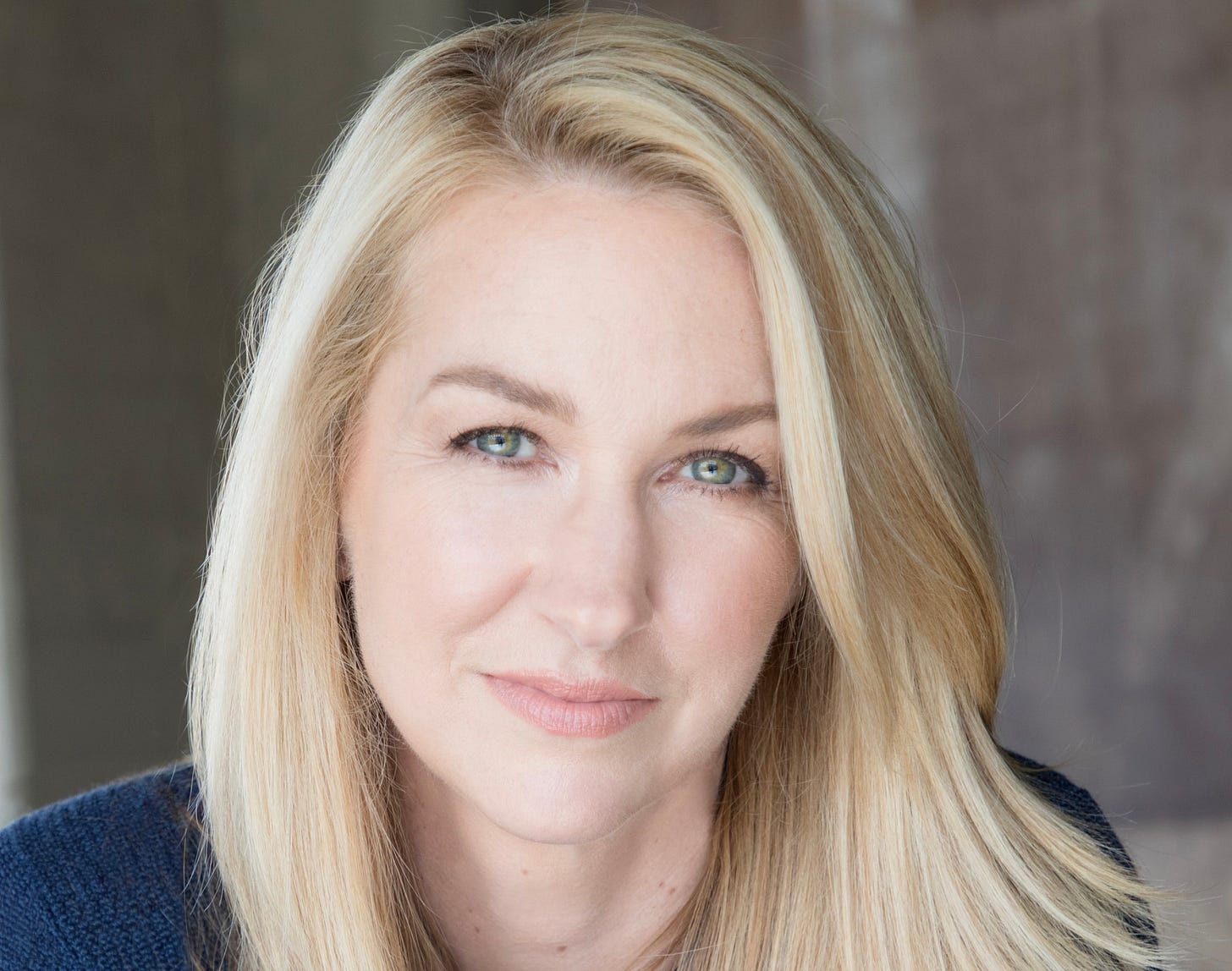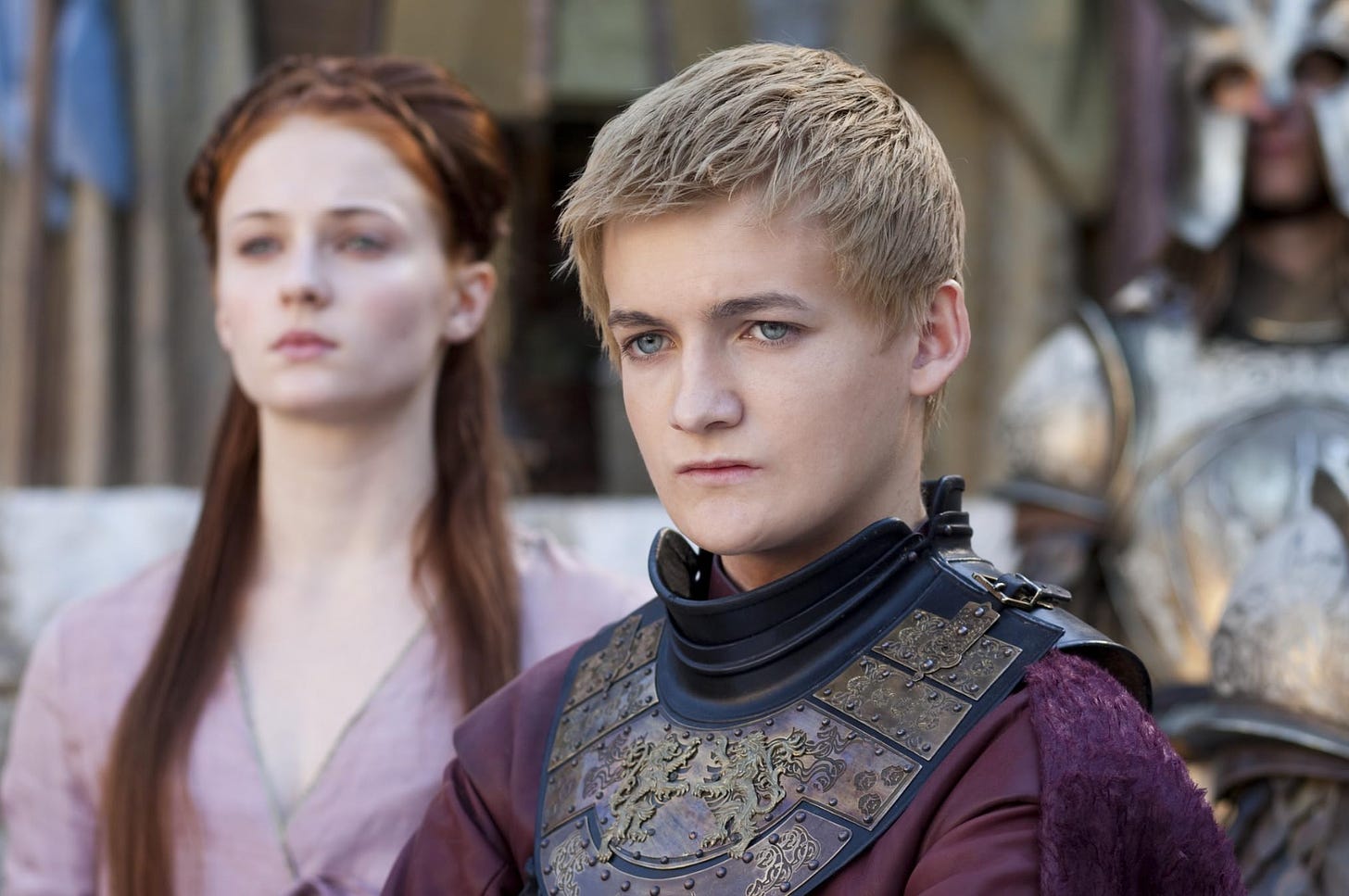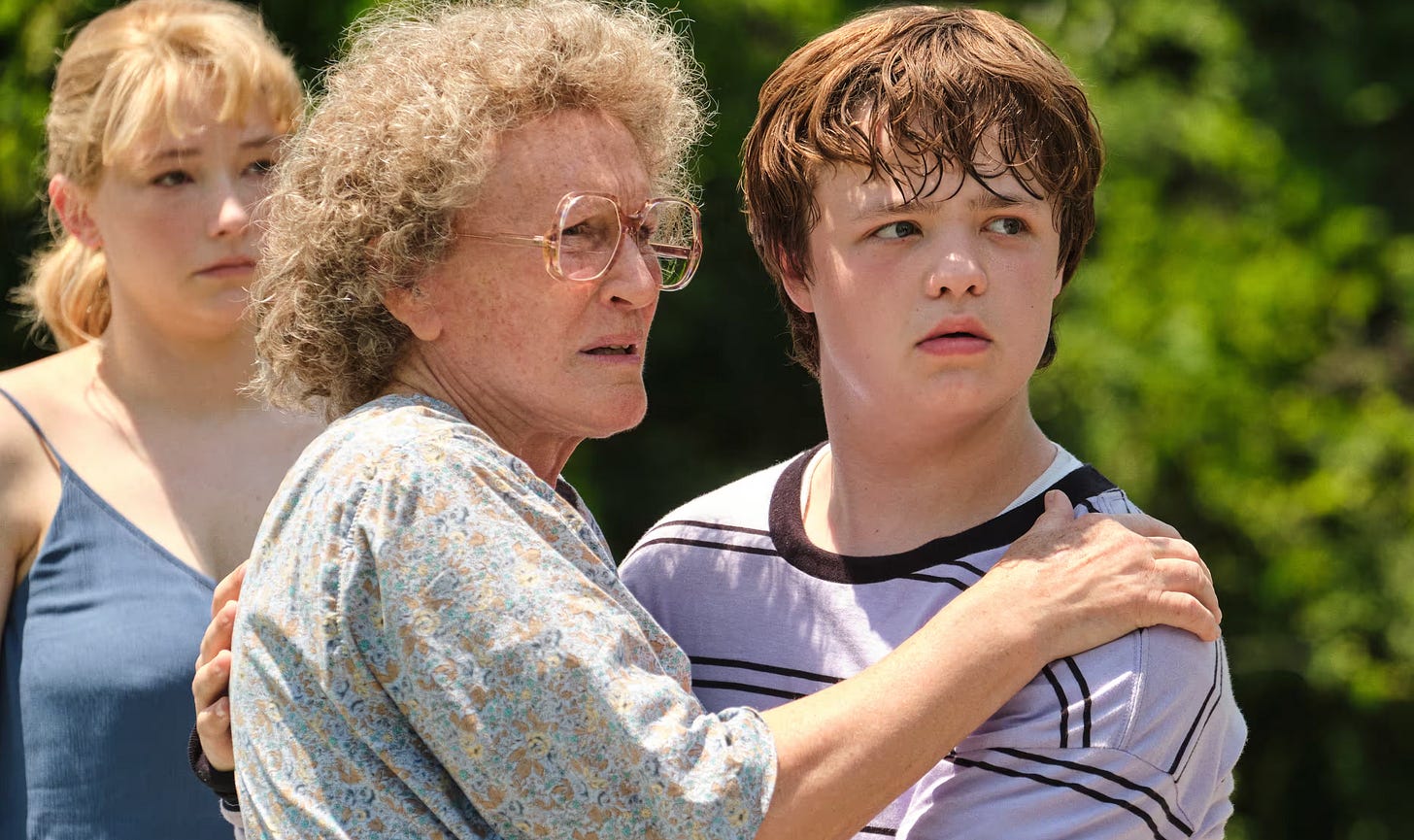Q&A: Screenwriter Vanessa Taylor Embraces 'Terror and Discomfort' in Her Creative Process
The Oscar-nominated co-writer of 'The Shape of Water' goes deep into her craft and how she continues to challenge herself as a storyteller
After I left Detroit for Hollywood in 2005, I tended to only visit home once a year. During these trips, I would try to join my mother to watch at least one film like we used to do together when I was growing up. Her pick in 2013 was a romantic comedy called Hope Springs, which had been released the year before; it starred a cast of nobodies with names like Meryl Streep, Tommy Lee Jones, and Steve Carell nobody ever heard from again. As it turned out, she’d already seen the film and it enjoyed it so much that she bought a copy of it on DVD to share with me. It was one of the last things I ever watched with her, which means it will forever hold a special place in my heart. Long story short: this is how I became aware of Hope Spring’s screenwriter Vanessa Taylor, whose work on it was superb.
Vanessa’s name wasn’t so new to television viewers as it was to me, though; she’d co-created the series “Jack & Bobby” in 2004 and written on series like “Alias” and “Everwood” before that. In 2013, I’d see her name pop up on multiple episodes of “Game of Thrones”, too; she wrote on Season 2 and 3. In the years that followed, she’d write or co-write several more films including Divergent (2014), Hillbilly Elegy (2020), and, most recently, Uglies (2024). But if you ask me, my favorite work from her is the one that earned her an Academy Award nomination in 2018 for Best Original Screenplay — The Shape of Water (2017), which she co-wrote with its director, Guillermo del Toro. The film, a love story between a mute and a gill-man, went on to win Best Picture.
Needless to say, Vanessa and I will be discussing Shape of Water at length, as well as some of the challenges she experienced on “Game of Thrones” and what she learned from adapting J.D. Vance’s “autobiography” Hillbilly Elegy for director Ron Howard. The conversation is much bigger than these three art works, of course; we’re going to lean heavily into her craft and the toolbox she’s assembled for herself by constantly pursuing projects she isn’t sure if she can pull off. She describes this as a way to keep her work exciting, but I think there’s a lot to be said for embracing, as she puts it, “terror and discomfort” in our work. This is a masterful screenwriting tutorial, my readers. Let’s dive in now…
COLE HADDON: Vanessa, let’s start with a simple question…why does art matter?
VANESSA TAYLOR: I don’t know if art matters. It matters to me. Writing has been a friend, an escape, a hope, an aspiration, a means of learning, and a reason to practice discipline, and a source of both confidence and joy – not to mention a door to a world of interesting and passionate collaborators and friends. I think as a consumer of art, I feel now more than ever the need to escape, to be uplifted and inspired. I think it can function as a bridge between people, cultures, eras…and a witness, an artifact. But I’m not sure I’m the right person to ask why.
CH: Oh, but I think you sound like exactly the right person to ask – at least from where I’m sitting today. There’s no one answer here, and in fact, “House” creator David Shore recently started one of these conversations questioning the notion that art matters at all. But I love your answer, especially the beginning where you focused exclusively on your own experience of it. I think I tend to focus too much on the value of art, on its significance to our culture, rather than my own experience of it. I’m not sure why that is.
You mentioned a need to escape these days, to be uplifted and inspired. I’m curious, is there a film that has perennially done that for you? That perfect plate of comfort food you return to over and over when you need to feel better about…well…everything?
VT: Tootsie? I’ve seen this movie too many times to count. It just is perfect in every way. I recently tried to show it to my daughter, who is seven and a half. Too soon. I’ve also watched The Social Network a ton. I find its artistry inspiring, the way all the elements come together. For pure comfort…Notting Hill, Four Weddings and a Funeral, The Proposal, Miss Congeniality.
CH: I haven’t seen the last two films since their initial releases, so my memories of them are fuzzier, but as for the first four you brought up, those are all films I would describe as heavily reliant on crisp, character-driven dialogue that is so perfect it leaps off the page and is instantly quotable onscreen. I’m curious, what’s your relationship with dialogue like? How do you make it similarly come alive for you and characters?
VT: I often think this kind of dialogue – which I love – and realism are at odds.
CH: How so?
VT: You can be stylized and super clever, or you can make people sound like they - mostly - sound in real life, with stops and starts, stutters, redundancies, picking the wrong word. I really admire the former and mostly tend to write the latter. Perhaps at some point I’ll get a chance at something that really requires that kind of cleverness – I’d love to.
CH: What makes for bad dialogue in your mind, whether it’s clever or more realistically written?
VT: I think bad dialogue feels inauthentic. Often dialogue is used to convey exposition in a way that’s unnatural. I really hate dialogue that clearly exists only to tell the audience something. People convey expositional information in their speech all the time, they just don’t do it in a way that telegraphs that that’s what they’re doing.
CH: So, let’s talk more specifically about your work. When I look at your filmography, the first thing that jumps out at me is how impossible it is to nail you down as a storyteller. I’ve rarely seen a screenwriter with such a diverse body of work, casually and regularly crossing genres. It’s like someone showed you the box you were supposed to get in, and you flipped it the finger as you strolled past it. Tell me, how the hell did this happen?
VT: I haven’t intentionally crossed genres. I’ve followed what I wanted to write and what I felt I could write, the things I had a connection to that I felt I could get inside and embody. I began in television on a show I loved where I was fortunate enough to have a generous boss, Rob Thomas, who gave me an opportunity. The next year I found a job on a show by Paul Attanasio. I was both incredibly naïve and…obnoxious? I remember telling my agent, “If it’s not this show, it could be any other show, this is the only one I want.”
CH: Why is that?
VT: It was because I felt the writing in it was great and I wanted to be a part of that. Then I went to “Alias” because, again, I truly admired the work the JJ [Abrams] was doing. It was genre, and my agent at the time said, “I’m not sure I want you writing genre.” And I thought, “What’s he talking about? This is the best pilot this year.” Then, when I went onto “Everwood”, it was a great gift because I felt so at home, I loved the show and the people so much and I found an identity there, a way to contribute. It was never a chore or an effort, it felt like finding a place I belonged.
CH: What a lovely description of what is, after all, a workplace.
VT: “Jack & Bobby” was a continuation of that. And then “Tell Me You Love Me” was so different – but again, I truly admired what the creator was doing, it felt wholly new to me. I wanted to see if I could do it. I guess that’s a theme here – identifying something challenging and seeing if I can do it. I find that both exciting and terrifying. That’s how I felt about “Game of Thrones.” Like, “I hope I can do this!” I didn’t see that show as genre, I just saw it as great writing. The pilot was so elegant and compelling, I just wanted to be a part of it. I was intimidated by the period, the fantasy, the mythology — but my admiration for the writing inspired me to try to up my game.
CH: Maybe this is a good place to pivot to your film work, though I’m sure we’ll come back to TV. Is there any logic to explain the stories you’ve pursued in this medium?
VT: I wrote my first feature as a spec. It started just with a question I wanted to answer. And a voice. And I just chased it – chased the story it wanted to tell and tried to make it as authentic as I could. Divergent was an opportunity that came out of a job I didn’t get and, again, I felt like I knew my way into the story. Shape of Water was loving a filmmaker’s work and feeling like I understood his vision enough to be additive and work in the tone and palette he had in mind. I guess I just never feel like any of these are so different. They’re all, “Do you understand what it’s about and can you find the tone and are you in there with the character and do you see the structure in your head?” The variation is what keeps it interesting and challenging. I think it’s better as a marketing tool to specialize, to be the person who does comedy or sci-fi or whatever. But I find myself drawn in different directions, attracted to different stories, tones, collaborators, and compelled by the challenge of trying something new.
CH: See, what you’re describing sounds pretty much exactly like people pursue screenwriting anywhere else in the world. I still remember one of my first meetings in the U.K. I was clearly trying to oversell the idea I could do something other than genre and the producer said something like, “Oh, you’re a great writer. Here, we just assume that means you can write anything.” In the States, despite all my foreign writing samples, I’m still largely perceived to be a hard-genre writer because that’s how I started out there. Most of my most successful friends are still largely limited to working in one or two boxes where they found their success. I imagine for the same reasons your agent told you they weren’t sure they wanted you writing genre.
Does genre, its perceived rules, audience expectations of it, anything like that ever factor into how you tackle these stories as opposed to your less fantastical work?
VT: Honestly, I don’t think I’m knowledgeable enough about any of that to be hampered by it. I’ve remained, in some ways, genre-adjacent. I might be more intimidated if I were better informed. To me, it all feels of a piece. Some of the work – fantasy, sci-fi, etcetera – has a “what if” element and other work doesn’t. I find it freeing not to have to live in the strict laws-of-physics limitations of the real world, but the character arcs and emotional reality are the same.
CH: Which is harder to write in your experience, film or TV?
VT: I find the structure of film to be exponentially harder, which I both love and hate. I’d say “Game of Thrones” was the closest to the feature work in how difficult I found it. I had to give it 120% just to stay above water. It really challenged me – and it didn’t really get easier over time.
CH: What about “Game of Thrones” was so uniquely challenging for you?
VG: I had a hard time holding it all in my head. I could only get my mind around so much, so I had to laser focus on that part of the story, get it all down and then move on to the next. I always felt like I was struggling to remember all the parts of the world and the mythology. I found period challenging as well, how to make it sound authentic but not alienating.
CH: So, what was the secret in the end, when it came to period dialogue? Or maybe the better question is, what did you discover didn’t work through your experimentation?
VT: What my friend Bryan called “too much ye olde talk”. If felt kind of like the way a martini can have a hint of vermouth, I think you want a hint of period, enough to evoke it, but not to go full bore.
CH: Can you tell me why you think film structure is so much harder than TV structure?
VT: There’s something about the three-act structure that is puzzle-like. And you get one crack at it; it works or it doesn’t, unlike TV which can engage viewers with characters and dialogue. I feel like audiences will forgive an episode if it’s not structurally perfect but adds to the whole.
That’s not to say that some television isn’t structured brilliantly – [“The Bear’s”] “Seven Fishes” comes to mind – but I’m not sure it has to be in order to work. It has other attributes that give it value. When a film fails structurally, I think most of the time the film fails. I struggled with structure early on when I tried to adapt one of my favorite books, Beauty – where I struggled to appropriately lay in the antagonist – and then, later, when I tried to adapt Bad Blood. That one was very difficult because it didn’t have a traditional protagonist driving the action. I really enjoy both multi-protagonist narrative and jumping back and forth in time, but these elements increase the complexity and difficulty.
CH: You’re referring to Bad Blood: Secrets and Lies in Silicon Valley, the book by John Carreyrou about Elizabeth Holmes and Theranos. You worked with Adam McKay, who, I think it’s fair to say, brings a very loud political point of view to his films lately – one I tend to agree with, so I love them. By contrast, you also adapted Hillbilly Elegy, which was written by J.D. Vance. I know it posed some challenges, too, from what I’ve read. I’m curious if you could reflect on how America’s profound cultural divide in the 21st century complicates the act of adaptations like these.





